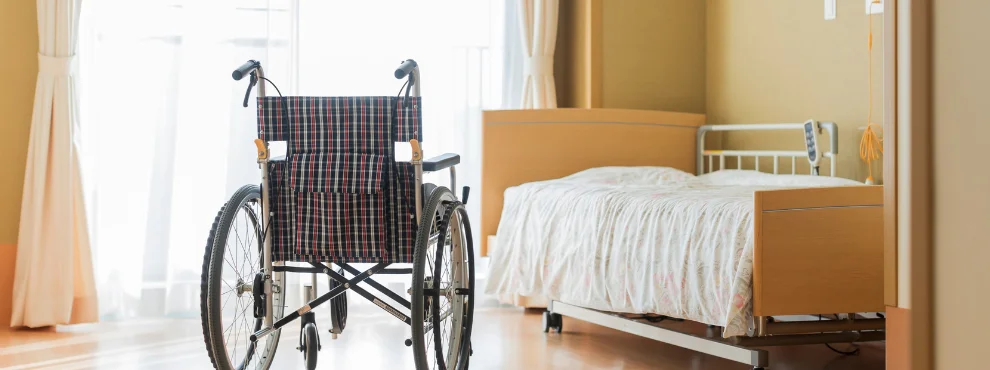Dealing with urinary incontinence in dementia: What caregivers really need in practice
A new research project at Witten/Herdecke University aims to identify ways of improving care for people with advanced dementia who suffer from urinary incontinence.

Urinary incontinence - the involuntary loss of urine - is a widespread but rarely discussed problem in elderly care. People with advanced dementia are particularly affected. They increasingly lose the ability to control their bladder and are often no longer able to go to the toilet independently. The consequences are serious: reduced quality of life, shame and stress - both for those affected and for carers.
A new research project brings light into the darkness
This is where the doctoral studies of Melanie Maschewski, a doctoral student at the School of Nursing Science at Witten/Herdecke University (UW/H), come in. In her doctoral thesis, she wants to visualise how carers act and make decisions in this situation - for example, how they care for people with advanced dementia with urinary incontinence, which measures they choose or how they deal with resistance and shame - and which decisions and experiences, thoughts and values determine their actions.
Previous studies have only provided limited answers. They show the frequency of incontinence, burdens for carers and individual measures. However, how carers make decisions, which strategies prove successful and which working conditions are necessary has remained largely unexplored to date. The doctoral studies close this gap. The findings are intended to provide carers with opportunities for reflection, give institutions impetus for better framework conditions and support politicians and trainers.
German Nursing Day with the participation of the UW/H
The importance of research into basic nursing activities such as incontinence care will also be demonstrated at the German Nursing Day 2025, which will take place in Berlin on 5 and 6 November under the motto #PflegeBleibt. Prof Dr Margareta Halek, Head of the School of Nursing Science at UW/H, will speak about the "Potential of the Fundamentals of Care - the framework model for nursing practice, education and research in Germany".
This international model describes nursing care as a complex process that is essentially relationship-orientated and makes it understandable within the framework of the healthcare system. Researchers at the UW/H and the Medical University of Lausitz - Carl Thiem have jointly translated the model into German and thus made it available to nursing practice in Germany.
Both works - Melanie Maschewski's doctoral studies and the research on the Fundamentals of Care - pursue the same goal: to make care visible, strengthen its foundations and show ways in which it can succeed in everyday life.
Contact person

Svenja Malessa
Press Officer
Administration | Communication & Marketing
Alfred-Herrhausen-Straße 48
58455 Witten
Room number: 2.F05